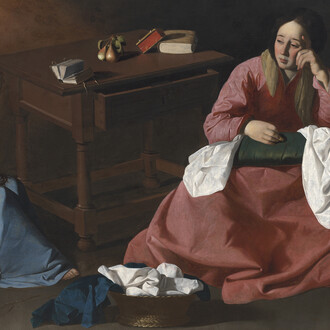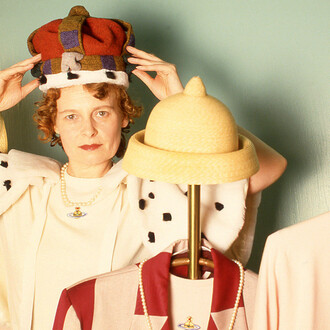Over several decades, Rosika Desnoyers has developed an interdisciplinary art practice that is premised on the aesthetic use, study and collection of pictorial embroidery as a means to explore the disciplinary social relations of contemporary art production. Her thesis in research-creation investigates the conditions of emergence of Berlin work (needlepoint) in the early nineteenth century and its eventual shift from that of an official knowledge, the most widely practiced form of art by European women, to that of a submerged knowledge, displaced by the skill-based ethics of the Arts & Crafts Movement and by formalist philosophy at the turn of the last century.
The exhibition at the Acme Project Space presents new work developed within a six-month studio residency as the Canada Council for the Arts London Artist Resident. This work expands Desnoyers' genealogical investigation of a submerged cultural practice suspended between historically specific and temporally sedimented meanings. The Creative Industry of Mary Linwood explores the late eighteen-century needlepainting of Mary Linwood as a strategy for the production of new visual propositions within the context of Desnoyers’ own 'effective' display strategies.
Rosika Desnoyers is a Montreal-based artist with experience working in several national museums in Canada and the United States. She is the recipient of a humanities doctorate from Concordia University and a postdoctorate from the Université du Québec à Montreal. She is co-author of the recently published Millet Matrix: Contemporary Art, Collaboration, Curatorial Praxis (oncurating.org) and author of the forthcoming Berlin Work, Genealogy, Needlepainting: A History of Errors.
















